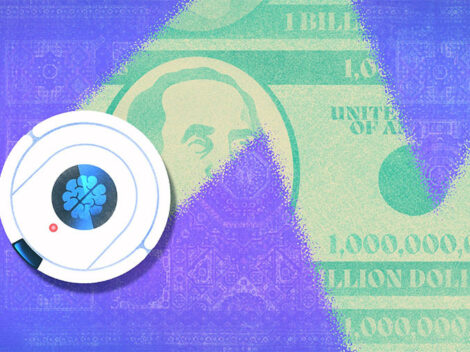Sequoia Capital has raised $195 million to close its fourth dedicated fund to invest in seed rounds in the U.S. and the firm’s recently founded European early-stage practice.
Subscribe to the Crunchbase Daily
The seed fund also covers investments made through Sequoia’s scout program — an innovation the firm launched in 2009 — to access networks of founders and executives for seed stage investments.
Sequoia’s entire early-stage team focuses on seed and Series A funding, with more than a dozen partners investing across the U.S. and Europe.
We spoke with Jess Lee, a partner at the firm, about its seed-stage practice and its Company Design Program.
-

Jess Lee, partner at Sequoia Capital.
“Each Sequoia partner does one, two, maybe three investments per year, and our style is to partner very, very deeply,” Lee said. She added that the firm’s approach is to treat seed fundings the same as Series A rounds, with the possible exception of not having an official board.
“We treat each of those relationships as the beginning of a 10- to 15-year journey,” she said.
Lee was a scout for Sequoia before she joined the partnership in 2016. She is currently on the board of Crew, Ironclad, Maven Clinic, Mos, Setter, The Wing and Wonolo. Previously, she was the CEO and co-founder of shopping app Polyvore, which was acquired by Yahoo in 2015.
The pace of seed at Sequoia
In 2020, close to half of Sequoia Capital’s investment in new portfolio companies were either in pre-seed or seed-stage companies, with a greater number of new portfolio investments at seed than at Series A, according to the firm. All told, the U.S. practice invested in 43 companies at seed in 2019 and 2020. The majority of those companies are still in stealth.
Seed investments at Sequoia require unanimous partner approval, as do all venture investments. The firm typically will lead or co-lead a seed round, investing anywhere from $500,000 to a few million dollars.
In recent years, Sequoia has invested at seed and led the Series A for mmhmm (2020), Temporal (2019), Linear (2019), Vise (2019 and Tecton (2018). The Org and Evervault raised seed funding with Sequoia in 2019, with their Series A rounds led by Founders Fund and Index Ventures, respectively.
The company’s third seed fund raised $180 million and was announced in January 2018. Its very first seed fund was raised in 2012 and the second in 2013.
A 10-year journey
Why is the seed stage important to Sequoia, a firm with substantial venture and growth-stage funds to invest?
While seed and angel funding has been around since the beginnings of venture investing, institutional seed funding didn’t emerge until around 2004 or 2005 with the founding of new funds dedicated to seed. It became cheaper to start a company after the launch of cloud services, which allowed companies to launch without needing to build expensive in-house servers.
Before that, a Series A round was typically the first institutional funding for a company.
This growth in new seed funds has continued in the past decade, with funds ranging in size from $3 million to close to $300 million. According to Crunchbase data, more than 5,500 institutional seed rounds were raised in 2019 in North America and Europe.
Sequoia, however, is known for investing early in Atari, Apple, Electronic Arts and Cisco in the 1970s and 1980s.
The firm also has a reputation for working with founders at the idea stage; when a company does not yet have a product. That was the case recently with Nubank, a Brazilian credit card company. At other times, it’s worked with startups that have a product that is yet to be launched, as was the case when Sequoia first invested in Dropbox. And YouTube’s founders famously worked out of the Sequoia office as they iterated on the product, as did the founder of Palo Alto Networks, who was introduced to his co-founder through Sequoia.
Seeding scouts
The firm’s scout program, an innovation started in 2009, further expanded Sequoia’s access to founders and operators. Since then, more than 900 pre-seed and seed funded companies have received investments through scouts.
Like Lee, Alfred Lin and Mike Vernal were scouts before joining Sequoia’s seed and early-stage practice. Sequoia scouts have also become investors at other venture firms.
Lee said each partner has his or her own network of scouts they work with. Her focus is on investments in diverse founders, and the scouts she works with reflect that diversity.
Each scout has $100,000 to invest in one or more companies, and will write a memo that speaks to the investment thesis. The scout, rather than Sequoia Capital, is the named investor.
Scout investments include Clever, Faire, Guardant Health, Stripe and Thumbtack. Sequoia has also co-invested alongside scout investments in companies like GenEdit, Ethos, Linear and Threads.
Supporting seed-stage companies
Roelof Botha, the lead of Sequoia’s practice in the U.S., recently spoke with Crunchbase News about the firm’s overall investment strategy and its returns in 2020. The firm is always looking for ways to innovate in venture, he said.
That includes its decision to provide the Company Design Program to its seed and early-stage companies, which teaches founders how to design a company. The program, originally called AMP, was first launched a few years ago and focused on helping launched and up-and-running early-stage companies increase the slope of their trajectory (think seed, Series A and Series B). The firm then evolved the program and unveiled a version that focuses on pre-seed and seed-stage companies last year.
“We put together a curriculum from the vault of 50 years of tribal knowledge and working with some of the best founders,” said Lee.
The startup founder’s journey can be quite lonely, she added, which is why connecting with other founders with a shared experience can be very helpful at the earlier stages.
The Company Design Program runs for three weeks with three half-day commitments and is currently virtual. Partners at Sequoia present on topics like “customer obsession” and “developing the product story,” which is led by Lee and James Buckhouse, the design partner at Sequoia.
Botha talks founders through strategy and finance; Alfred Lin, previously from Zappos, covers culture; Carl Eschenbach, the previous COO at VMware, presents on go-to-market and scaling; and Bryan Schreier, previously at Google, runs the category design section, on building and launching new markets. Throughout the program, founders do actual work and get to see each other’s work.

Sanchali Pal, founder and CEO of Joro, a pre-see- and seed-funded company backed by Sequoia, went through the program. She is a first-time founder and a graduate of Harvard Business School. She acknowledged that raising funding is challenging when you’ve never done it before.
Pal reached out to Sequoia partner Schreier cold after reading a blog post where he noted a lack of investment in climate change. Joro is an app that helps people take effective climate action beginning with tracking spending, which Pal says is a good way to measure carbon footprint.
She emailed Schreier in the spring of 2019 and went on to raise funding from Sequoia Capital that summer.
Pal joined the first class of the Company Design Program in August 2019 with six other founders, all companies at the seed stage. Pal was concerned when she raised her pre-seed investment from Sequoia that a giant fund might not have time for her small startup. She came to learn that each partner makes two to three investments per year and has time to dedicate to founders.
Pal acknowledged that initially she was a little skeptical due to the time commitment, but found that a “structured space for reflection with other founders at the same stage, and with partners who had seen companies at our stage grow” was valuable. The founders still connect on a Slack group and on calls.
Through the program, she found that she got to know other partners and operators at Sequoia Capital, which “opened my eyes to what I could ask for from Sequoia.”
“The framework they shared with us for thinking about user journeys and personas and how that translates into your business model was incredibly helpful,” said Pal. As part of the program she received a slide deck which was helpful in both fundraising and for new hires. Over a year later, in December 2020, Sequoia doubled down on its pre-seed investment and led Joro’s seed round of $2.5 million.
Illustration: Dom Guzman

Stay up to date with recent funding rounds, acquisitions, and more with the Crunchbase Daily.







![Illustration of a guy watering plants with a blocked hose - Global [Dom Guzman]](https://news.crunchbase.com/wp-content/uploads/quarterly-global-3-300x168.jpg)
67.1K Followers